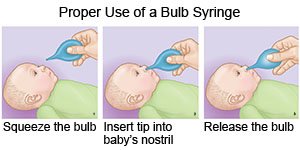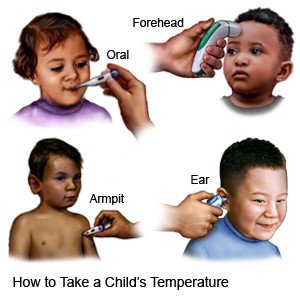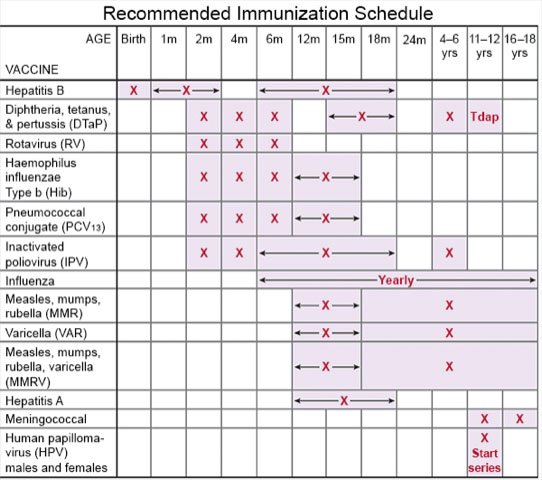Viral Syndrome in Children
Medically reviewed by Drugs.com. Last updated on Aug 4, 2025.
Viral syndrome is a term used for symptoms of an infection caused by a virus. Viruses are spread easily from person to person on shared items.
DISCHARGE INSTRUCTIONS:
Call your local emergency number (911 in the US) if:
- Your child has a seizure.
- Your child has trouble breathing or is breathing very fast.
- Your child's lips, tongue, or nails, are blue.
- Your child cannot be woken.
Return to the emergency department if:
- Your child complains of a stiff neck and a bad headache.
- Your child has a dry mouth, cracked lips, cries without tears, or is dizzy.
- Your child's soft spot on his or her head is sunken in or bulging out.
- Your child coughs up blood or thick yellow or green mucus.
- Your child is very weak or confused.
- Your child stops urinating or urinates a lot less than usual.
- Your child has severe abdominal pain or his or her abdomen is larger than normal.
Call your child's doctor if:
- Your child has a fever for more than 3 days.
- Your child's symptoms do not get better with treatment.
- Your child's appetite is poor or your baby has poor feeding.
- Your child has a rash, ear pain, or a sore throat.
- Your child has pain when he or she urinates.
- Your child is irritable and fussy, and you cannot calm him or her down.
- You have questions or concerns about your child's condition or care.
Related medications
Medicines:
Antibiotics are not given for a viral infection. Your child's healthcare provider may recommend the following:
- Acetaminophen decreases pain and fever. It is available without a doctor's order. Ask how much to give your child and how often to give it. Follow directions. Read the labels of all other medicines your child uses to see if they also contain acetaminophen, or ask your child's doctor or pharmacist. Acetaminophen can cause liver damage if not taken correctly.
- NSAIDs , such as ibuprofen, help decrease swelling, pain, and fever. This medicine is available with or without a doctor's order. NSAIDs can cause stomach bleeding or kidney problems in certain people. If your child takes blood thinner medicine, always ask if NSAIDs are safe for him or her. Always read the medicine label and follow directions. Do not give these medicines to children younger than 6 months without direction from a healthcare provider.
- Do not give aspirin to children younger than 18 years. Your child could develop Reye syndrome if he or she has the flu or a fever and takes aspirin. Reye syndrome can cause life-threatening brain and liver damage. Check your child's medicine labels for aspirin or salicylates.
- Give your child's medicine as directed. Contact your child's healthcare provider if you think the medicine is not working as expected. Tell the provider if your child is allergic to any medicine. Keep a current list of the medicines, vitamins, and herbs your child takes. Include the amounts, and when, how, and why they are taken. Bring the list or the medicines in their containers to follow-up visits. Carry your child's medicine list with you in case of an emergency.
Treatment options
The following list of medications are related to or used in the treatment of this condition.
Care for your child at home:
- Give your child plenty of liquids to prevent dehydration. Examples include water, ice pops, flavored gelatin, and broth. Ask how much liquid your child should drink each day and which liquids are best for him or her. You may need to give your child an oral electrolyte solution if he or she is vomiting or has diarrhea. Do not give your child liquids that contain caffeine. Caffeine can make dehydration worse.
- Have your child rest. Encourage naps throughout the day. Rest may help your child feel better faster.
- Use a cool-mist humidifier to increase air moisture in your home. This may make it easier for your child to breathe and help decrease his or her cough.
- Give saline nose drops to your baby if he or she has nasal congestion. Place a few saline drops into each nostril. Gently insert a suction bulb to remove the mucus.

- Check your child's temperature as directed. This will help you monitor your child's condition. Ask your child's healthcare provider how often to check his or her temperature.

Prevent the spread of germs:
- Have your child wash his or her hands often with soap and water. Remind your child to rub his or her soapy hands together, lacing the fingers, for at least 20 seconds. Have your child rinse with warm, running water. Help your child dry his or her hands with a clean towel or paper towel. Remind your child to use hand sanitizer that contains alcohol if soap and water are not available.

- Remind to child to cover sneezes and coughs. Show your child how to use a tissue to cover his or her mouth and nose. Have your child throw the tissue away in a trash can right away. Remind your child to cough or sneeze into the bend of his or her arm if possible. Then have your child wash his or her hands well with soap and water or use hand sanitizer.
- Keep your child home while he or she is sick. This is especially important during the first 3 to 5 days of illness. The virus is most contagious during this time.
- Remind your child not to share items. Examples include toys, drinks, and food.
 |
- Ask about vaccines your child needs. Vaccines help prevent some infections that cause disease. Have your child get a yearly flu vaccine as soon as recommended, usually in September or October. Your child's healthcare provider can tell you other vaccines your child should get, and when to get them.

Follow up with your child's doctor as directed:
Write down your questions so you remember to ask them during your visits.
© Copyright Merative 2025 Information is for End User's use only and may not be sold, redistributed or otherwise used for commercial purposes.
The above information is an educational aid only. It is not intended as medical advice for individual conditions or treatments. Talk to your doctor, nurse or pharmacist before following any medical regimen to see if it is safe and effective for you.
Learn more about Viral Syndrome
Treatment options
Care guides
Medicine.com guides (external)
Further information
Always consult your healthcare provider to ensure the information displayed on this page applies to your personal circumstances.
